This article was co-authored by Lucy Yeh and by wikiHow staff writer, Jennifer Mueller, JD. Lucy Yeh is a Human Resources Director, Recruiter, and Certified Life Coach (CLC) with over 20 years of experience. With a training background with Coaching for Life and Mindfulness-Based Stress Reduction (MBSR) at InsightLA, Lucy has worked with professionals of all levels to improve the quality of their careers, personal/professional relationships, self marketing, and life balance.
There are 11 references cited in this article, which can be found at the bottom of the page.
wikiHow marks an article as reader-approved once it receives enough positive feedback. In this case, 93% of readers who voted found the article helpful, earning it our reader-approved status.
This article has been viewed 186,901 times.
If you live far away from a company where you've applied to work, or if the company is swamped with applications, you may be asked to do a phone interview. Your goal with a phone interview is to get to the next stage of the process, where you can have an in-person interview. To make a good impression, treat your phone interview exactly as you would an in-person interview. Answer the phone interview call professionally, and maintain a courteous and professional tone throughout the conversation.[1]
Steps
Answering the Call Properly
-
1Greet the interviewer professionally. Perhaps the most important part of a phone interview is how you answer the phone when it rings. You are expecting the call. Even if they're calling your personal number, answer the phone as though you were answering the phone at an office.[2]
- When the phone rings, answer it as soon as possible, no later than the third ring. Say hello and state your full name clearly. For example: "Hello, this is Jay Gatsby."
-
2Confirm you were expecting the call. After your greeting, the interviewer will return your greeting and let you know who they are. Jot down their name so you don't forget it, and let them know that you've been looking forward to hearing from them.
- For example: "Hi, Daisy! Thank you for taking the time to talk with me today. I'm excited to discuss the opportunity to work with your company."
Advertisement -
3Address the interviewer politely. You should dress professionally and sit up straight at a desk or table to reinforce the fact that this is a professional interview. Even though you're on the phone, be careful about lapsing into a more casual tone.[3]
- When you use the interviewer's name, call them by their last name with Mr. or Ms., or whatever title they used when they first introduced themselves. You can also address them as sir or ma'am.
- Only address the interviewer by their first name if they specifically ask you to do so.
- If the interviewer compliments you or makes any positive comments about you, be sure to tell them "thank you."
Acing the Rest of the Interview
-
1Take notes to organize your thoughts. One benefit of a phone interview is that you can jot down notes as the interviewer is talking or asking questions. This can help you plan what you're going to say and make sure you answer the question completely.[4]
- If the interviewer asks a multi-part question, outline the question by jotting down a word or two to help remind yourself of each part. You'll impress the interviewer when you respond in an organized way, listing the parts of their question back to them.
-
2Listen carefully and pause before responding. When all you have is a voice with no visual input, it can be difficult to focus. Concentrate on what your interviewer is saying and try to keep your mind from drifting off or thinking about what you're going to say.[5]
- Allow a few seconds of silence before you start speaking. This not only allows you to make sure that the interviewer is done speaking, but also gives you a chance to collect your thoughts before you speak.
- If you do happen to miss part of a question, or if you don't understand what the interviewer is asking, get clarification before you launch into your answer.
-
3Speak clearly and enunciate your words. Regardless of the clarity of the connection, it can be more difficult to understand someone over the phone than it would be if you were talking in person. Overcome this with slow, deliberate speech.[6]
- Make this something you work on during your practice phone interviews, if you have trouble enunciating or tend to mumble.
- When you're talking, make sure you're sitting up straight rather than laying down or leaning, and keep your hands off your face. It may be easier if you wear a headset or put the call on speaker so you don't have to hold the phone up to your face.
-
4Ask follow-up questions to communicate your interest. The best interview will feel more like a give-and-take conversation. Although the interviewer will likely ask you at the end of the interview if you have any questions, you should also take it upon yourself to ask questions throughout the course of the interview when the opportunity presents itself.[7]
- For example, the interviewer may ask you a question that reminds you of a news article you read about a new product the company is unveiling. When you've finished answering the question, you might ask "That reminds me of the article I read in Tech Daily about your Widget! How do you see the Widget impacting daily communication?"
-
5Send a thank you note after the interview. After your interview is over, take a few minutes to compose a handwritten thank you note and send it to your interviewer. The note doesn't need to be more than two or three sentences. Simply thank them for their time and for the opportunity, and let them know you look forward to hearing from them soon.[8]
- Try to be as specific as possible. If there was something they said to you that really stood out, you might mention that.
- If they gave you a definite time frame for when you could expect to hear back from them, mention it specifically.
Sounding Professional and Confident
-
1Sit up straight at a desk or table. A phone interview is not the time to spread out on your bed or lounge on the couch. How you're sitting affects how your voice sounds, and your interviewer will likely be able to tell if you're reclined. This sends the message that you're not taking the interview seriously.[9]
- Laying down also may reduce the call quality, or result in a lot of rustling and background noise when you shift position.
- If you sit up straight, your voice will project authority and confidence, which your interviewer will be able to hear.
-
2Treat a phone interview like an in-person interview. While it's true that your phone interviewer won't be able to see you, how you dress and present yourself will have an effect on your overall tone and attitude. Your interviewer will notice.[10]
- You don't necessarily have to go all the way and dress like you would if you were going to an in-person interview, but at least dress neatly and professionally before your phone interview.
- Think in terms of getting ready for the phone interview the way you would get ready to go to work if you were hired by the company.
-
3Avoid eating or drinking. Even if you have the person on speaker phone, they'll be able to hear if you're eating or drinking during the interview. If you've ever heard someone eating or drinking while on the phone, you understand how distracting this can be.[11]
- In keeping with the idea of treating a phone interview like an in-person interview, you don't want to do anything that you wouldn't do if you were meeting in your interviewer's office – that includes things like eating, drinking, or chewing gum.
- Keep a glass of water on hand in case your throat gets dry. Turn your head away from the phone to drink, and avoid ice cubes that could clink and be heard over the phone.
-
4Smile when you speak. When you smile, your face is more relaxed and your tone will automatically be friendlier and brighter. Even though the interviewer won't be able to see you, your voice will radiate positivity and enthusiasm.[12]
Planning Ahead for the Call
-
1Research the company before the interview. Even if you researched the company before you applied, once you're granted a phone interview it's time to dig deeper. Get to know what's happening in the company as well as the general industry.[13]
- Look up news items and go to the company's website to read press releases and find out what new products or services the company has coming out soon. Make notes about things you might want to ask your interviewer about.
- You also want to get a handle on the activities of the company's key competitors. Read about the overall industry as well, so you understand the strengths of the market.
-
2Draft sample answers to common interview questions. When you're giving a phone interview, the interviewer won't be able to see you. Use this to your advantage by drafting some quick notes to help you if you get asked particularly difficult questions.[14]
- For example, you're probably going to be asked to identify your strengths and weaknesses. Your answers to these questions should be organized and concise, and should relate to a work-related trait, not a personal one.
-
3Practice talking on the phone. Doing an interview over the phone is nothing like chatting to friends and family. Especially if you haven't had a good deal of experience using the telephone professionally, try to get on the phone as often as possible in the days leading up to the phone interview.[15]
- When you talk on the phone, you lack visual cues that can tell you when a person has stopped talking, or when it's time for you to respond. Practicing phone conversations can help you adjust so the conversation runs more smoothly.
- If you don't have any real reasons to use the phone, ask a friend or family member if they'd be willing to practice with you. Arrange for them to call at a specific time, and treat it just like an interview.
-
4Find a quiet place to take the call. Set up an area at home or in a quiet environment where you have control over the background noise and activities going on around you. If you're using your mobile phone, make sure you get a good signal in that location.[16]
- If your home is a noisy place with kids or roommates coming in and out, find somewhere else with relative privacy. Many libraries have conference rooms or study rooms with closed doors that you can reserve – just make sure you have your room lined up well in advance.
-
5Turn off notifications and electronic devices. If the interviewer hears dings or buzzes from a device during the interview, they'll get the impression that you're doing something else while you're talking to them. Give them your undivided attention, just as you would if you were having the interview in their office.[17]
- Other devices also may interfere with your signal and affect the quality of your reception if you're using a mobile phone. Turn off any Wi-Fi devices in the area where you'll be taking the call, or move them to another room for the duration of the call.
-
6Gather all your documentation. Organize your notes, any information about the company, and copies of your resumé and other materials so that you can access them easily while you're on the phone for the interview.[18]
- Spread things out so that you can access them easily without having to do a lot of shuffling or moving around. The interviewer will be able to hear you over the phone, and you may end up sounding more scattered and disorganized than you actually are.
-
7Try breathing exercises before the time of the call. You'll probably be nervous as the time approaches for your interviewer to call. Practicing some deep breathing can calm your voice and help you relax and focus.[19]
- In addition to taking a few deep breaths, you also might want to try a few vocal preparation exercises, just as singers or actors do before going on stage. This will help keep your voice from cracking or shaking, and give you more command over your voice.
Expert Q&A
Did you know you can get expert answers for this article?
Unlock expert answers by supporting wikiHow
-
QuestionHow do you prepare for a phone interview?
 Lucy YehLucy Yeh is a Human Resources Director, Recruiter, and Certified Life Coach (CLC) with over 20 years of experience. With a training background with Coaching for Life and Mindfulness-Based Stress Reduction (MBSR) at InsightLA, Lucy has worked with professionals of all levels to improve the quality of their careers, personal/professional relationships, self marketing, and life balance.
Lucy YehLucy Yeh is a Human Resources Director, Recruiter, and Certified Life Coach (CLC) with over 20 years of experience. With a training background with Coaching for Life and Mindfulness-Based Stress Reduction (MBSR) at InsightLA, Lucy has worked with professionals of all levels to improve the quality of their careers, personal/professional relationships, self marketing, and life balance.
Career & Life Coach
-
QuestionIf they ask for what is your strength and weaknesses, what should I say?
 Community AnswerTell them what your personal strengths and weaknesses are. They want to hear both so do not say that you do not have any weaknesses. Be honest.
Community AnswerTell them what your personal strengths and weaknesses are. They want to hear both so do not say that you do not have any weaknesses. Be honest. -
QuestionHow do I answer "Tell me about yourself"?
 Mzm555Top AnswererGive a brief overview of a few of your most recent jobs and key skills you did in them, what you enjoyed working in, and how you would like to use these skills for the position you applied for.
Mzm555Top AnswererGive a brief overview of a few of your most recent jobs and key skills you did in them, what you enjoyed working in, and how you would like to use these skills for the position you applied for.
References
- ↑ https://www.indeed.com/career-advice/interviewing/how-to-start-a-phone-interview
- ↑ https://www.indeed.com/career-advice/interviewing/how-to-start-a-phone-interview
- ↑ https://targetjobs.co.uk/careers-advice/interview-types/273645-how-to-handle-a-telephone-interview
- ↑ https://www.monster.com/career-advice/article/mastering-the-phone-interview
- ↑ https://targetjobs.co.uk/careers-advice/interview-types/273645-how-to-handle-a-telephone-interview
- ↑ https://www.youthcentral.vic.gov.au/jobs-and-careers/job-interviews/attending-interviews/phone-interviews-6-tips-for-success
- ↑ https://hbr.org/2022/05/38-smart-questions-to-ask-in-a-job-interview
- ↑ https://www.indeed.com/career-advice/interviewing/how-to-start-a-phone-interview
- ↑ https://targetjobs.co.uk/careers-advice/interview-types/273645-how-to-handle-a-telephone-interview
- ↑ https://www.monster.ca/career-advice/article/mastering-the-phone-interview-canada
- ↑ https://www.linkedin.com/pulse/phone-interview-donts-meredith-shepard-mba-prc
- ↑ https://www.indeed.com/career-advice/interviewing/phone-interview-tips-to-get-you-to-the-next-round
- ↑ https://www.indeed.com/career-advice/interviewing/phone-interview-tips-to-get-you-to-the-next-round
- ↑ http://www.careercast.com/career-news/five-toughest-telephone-interview-questions-and-how-handle-them
- ↑ https://www.monster.com/career-advice/article/mastering-the-phone-interview
- ↑ https://targetjobs.co.uk/careers-advice/interview-types/273645-how-to-handle-a-telephone-interview
- ↑ https://targetjobs.co.uk/careers-advice/interview-types/273645-how-to-handle-a-telephone-interview
- ↑ https://www.job-hunt.org/job_interviews/telephone-interviews.shtml
- ↑ https://www.theguardian.com/careers/2015/aug/19/seven-ways-to-boost-confidence-at-a-job-interview
About This Article
To answer a phone interview call, start by greeting the interviewer professionally to make a good first impression. For example, in a clear voice, say “Hello, this is Jay Gatsby.” When the interviewer returns your greeting, jot down their name so you won’t forget it, and let them know that you’ve been looking forward to hearing from them. For instance, you might say “Thank you, Mrs. Daisy, I’ve been looking forward to talking to you.” As you talk, take notes to organize your thoughts and listen carefully before responding to questions. If you miss any part of a question, politely ask for them to repeat the question or for clarification. To learn how to ask follow up questions to show interest in the job, keep reading!

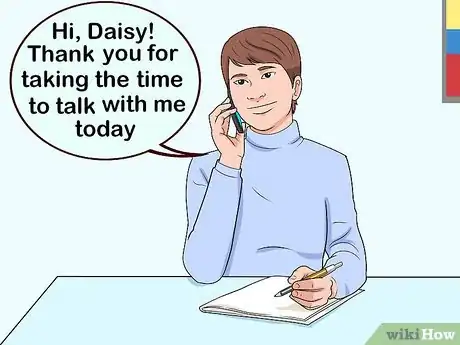
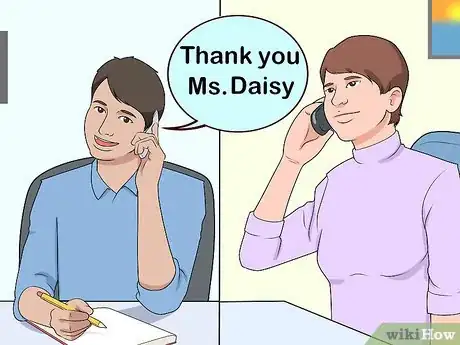
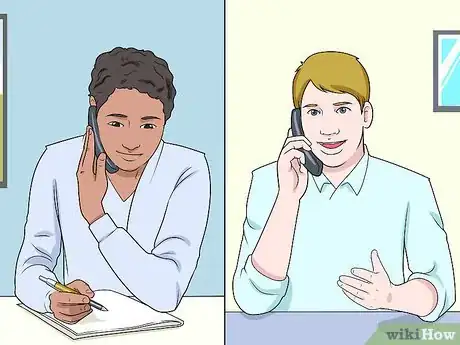
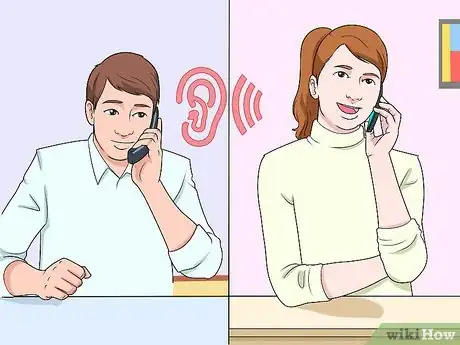
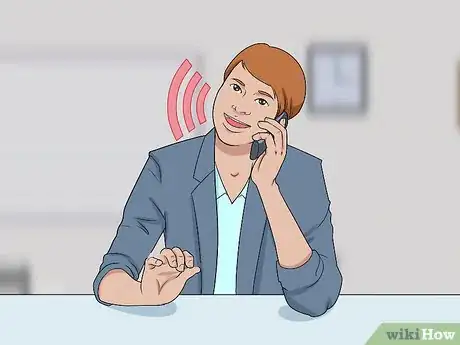
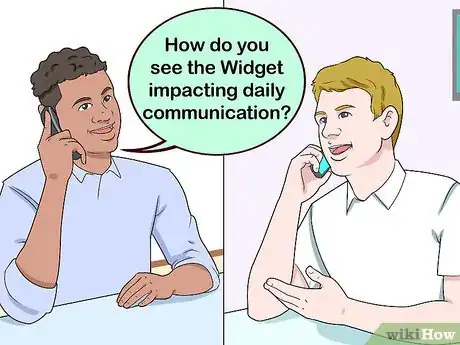
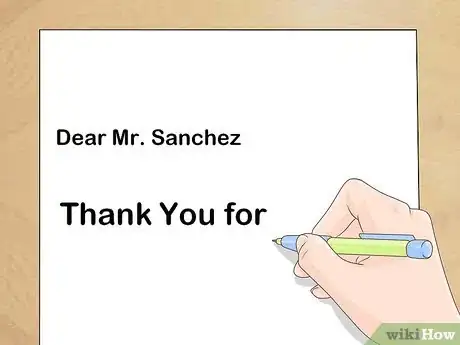
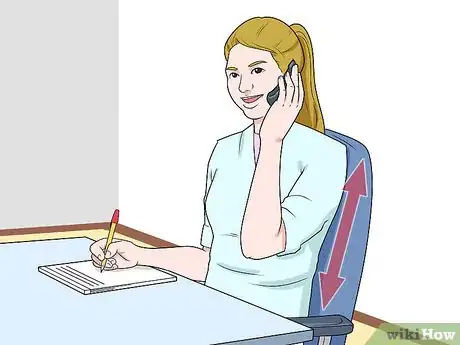
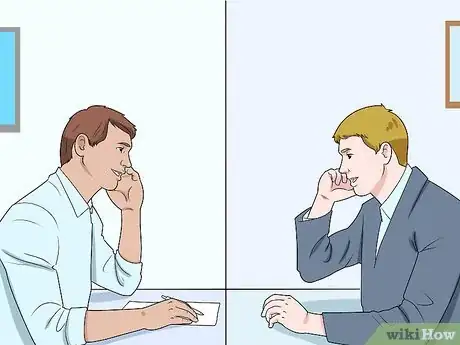
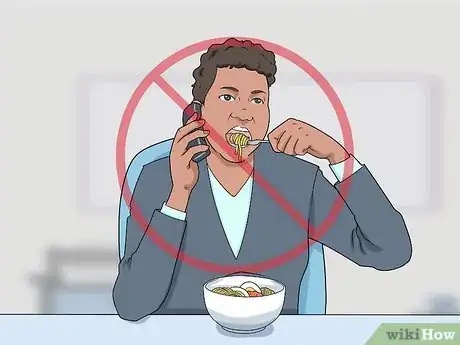
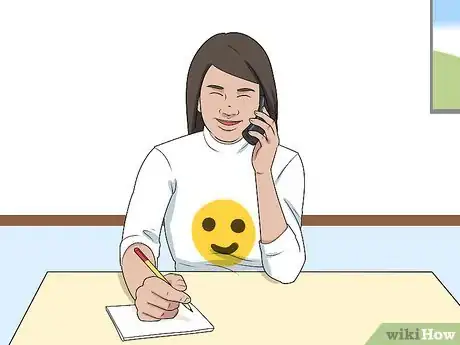


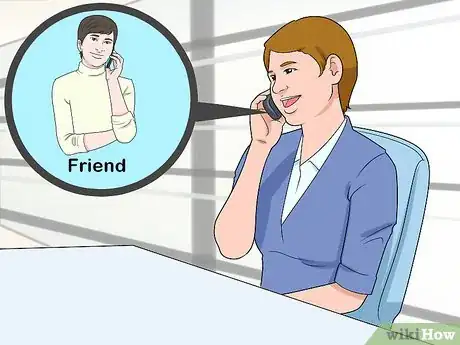

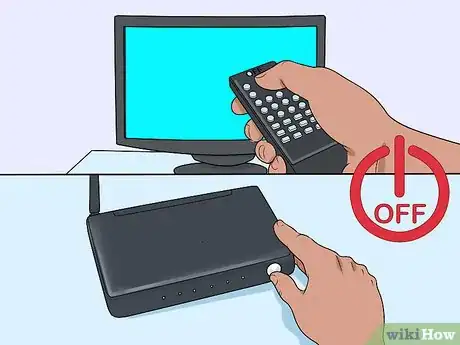
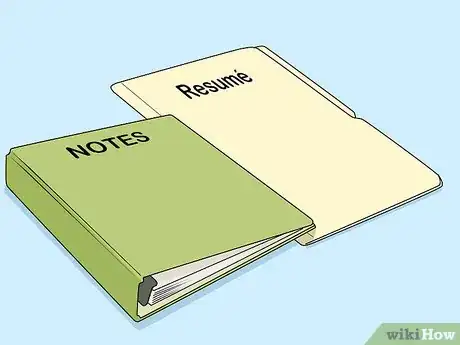


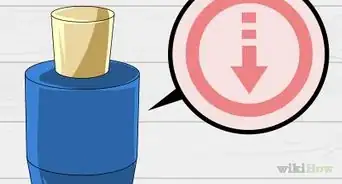
-Step-5-Version-4.webp)

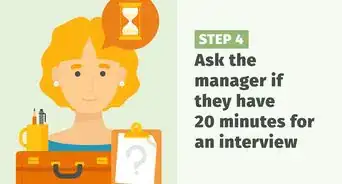
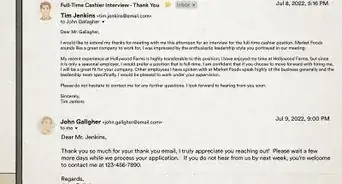



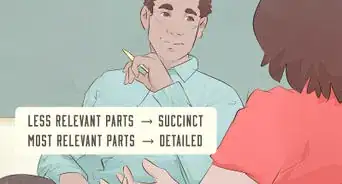
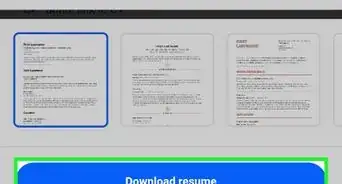
-Step-3-Version-2.webp)













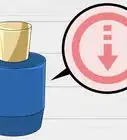
-Step-5-Version-4.webp)



































